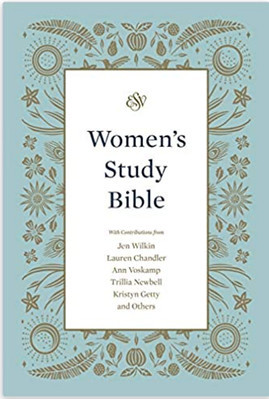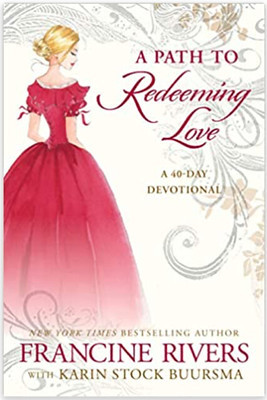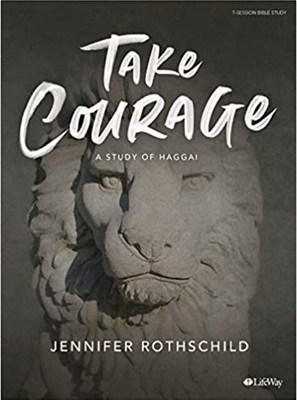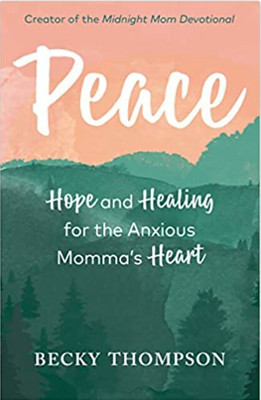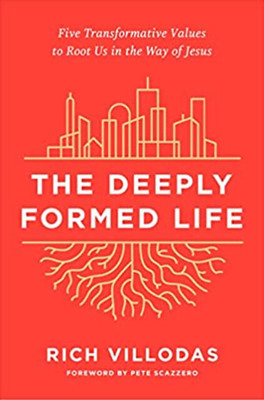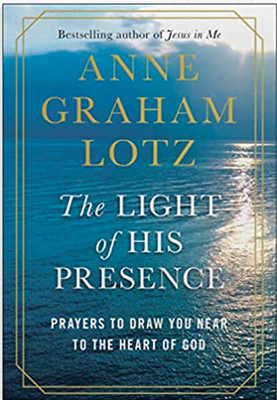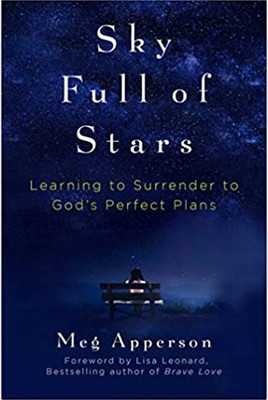Ann Voskamp's Blog, page 72
October 21, 2020
Why Words (on Social Media & the Air Waves & to our Neighbors) Really Matter Right Now
It’s a loud, deafening war of words out there and when I stand in the farm woods these days, looking up into the outstretched arms of trees, I have to wonder:
When a leaf falls in the woods, and there is actually someone to hear it, why does it sound so much like the quietness of grace?
It’s like all the trees of the woods are asking the people in the streets: How can you all sound alot more like grace?
Because: The way words are spoken matters to the One who is the Word, who is the Way.
What we say and how we say it matters, because we are the people who believe that is was the Word that created matter. Words create actual matter — for good or for evil –in the world.
Ours is the God who wields words — and by the Word of His mouth alone the universal black splits and cells divide and light sparks and mountains rise and oceans come thus far and no farther.
The breadth of this world was created by the breath of His Word (Genesis 1).
When God pulled on skin and came into this world, He came as the Word: “In the beginning was the Word, and the Word was with God, and the Word was God” (John 1:1).
“You are what you speak.”
We walk through the woods, leaves crunching quietly underfoot, and what Jesus teaches in Luke 6:45 resonates quietly in the heart: “The good person out of the good treasure of his heart produces good, and the evil person out of his evil treasure produces evil, for out of the abundance of the heart his mouth speaks.”
The tongue is the “tail” of the heart.
How your tongue wags always betrays the heart. The harsh, mocking, biting sin of the heart — or a heart so overflowing with grace that it spills out onto others.
What Jesus is saying here quietly interrupts every conversation:
You are your words.
No matter the jarring, a cup of fresh water can’t spill filthy water.
When you are upset, you upset what’s really in you.














“Cold words freeze people,” wrote the great philosopher and theologian, Pascal, “and hot words scorch them, and bitter words make them bitter, and wrathful words make them wrathful.
Kind words also produce their image on men’s souls; and a beautiful image it is. They smooth, and quiet, and comfort the hearer.”
“Only speaks words that make souls stronger.”
God spoke the world into being. And there is a way in which our words speak our own worlds into being. Bitter, cynical, sarcastic words make our worlds just that — or grace-filled, kind words, can make the world just that.
Whose mouth tears down the neighbor (Prov. 11:19)?
Or whose mouth is known for rejoicing (v. 10)? Or shouts of gladness (v.10)?
Whose mouth is known as one quick to bless and build up (v. 11)? Or to attack and sneer and snap and overthrow (v. 11)?
Proverbs 11:9-13 offers that the tongue can be a very real tool of evil or of good in whole sphere of living: both personally and culturally.
Belittle not — or the soul becomes little (v. 12).
Only speak words that make souls stronger. Sometimes the way to show the greatest understanding is to let your tongue sit still (v. 12).
Only speak words that make souls stronger. Tongues are daggers that slash, or are dressing to bind together (v. 12).
Only speak words that make souls stronger. Words are either pro-life, bringing life — or words are anti-life, crushing life.
As we quietly walk through the farm woods, each step crunching through a carpet of leaves that have fallen with a sure and steady grace, you can hear the sound of it, beating steady in the hearts of those who follow the Word who spoke not a word of defense but laid His life down on a Tree:
Only speak words that make souls stronger.
~edited excerpt from of one of my devotional reflections contributed to the ESV Women’s Study Bible
Studying and working on the ESV Women’s Study Bible was truly a weighty privilege of a life-time, as each of us prayed to help women in all seasons of life pursue a deeper, transformational understanding of Scripture.
The ESV Women’s Study Bible is filled with 13,000+ study notes, 523,000 words of study note content, 350+ reflections on key passages, 15 articles on theological topics, explanation of the plan of salvation, beautiful illustrations by award-winning artist Dana Tanamachi, 120 Bible character profiles, introductions and timelines for each Bible book, more than 80 maps and illustrations throughout, 80,000 cross-references and so much more!
Contributors include best-selling authors like Jen Wilkin, Lauren Chandler, Ann Voskamp, Trillia Newbell, Kristyn Getty, and many more.

October 19, 2020
You’re Never Unwanted or Worthless: no matter what anyone else says
Redeeming Love has touched the hearts of millions around the world, with Francine Rivers capturing the biblical story of Hosea through beloved characters Michael Hosea and Angel and set during the 1850s in Northern California. It beautifully reminds us of His never-ending love and the life changing possibility of redemption. Her new devotional welcomes readers to revisit the life-changing story of God’s love in an inspiring new way: a personal, 6-week journey through Angel and Michael’s iconic love story. Fiction has a way of drawing out truth to reach our hearts and when paired with biblical truth, our hearts can change forever. It’s a grace to welcome Francine to the farm’s front porch today….
We all experience rejection. Sometimes it strikes in subtle ways, and other times in a blatant way.
I look back over my life and remember the pain of it.
When I was a small child, I stood in the doorway of my mother’s room as she told me, from her bed, to stay out of the room and away from her.
“We all experience rejection. Sometimes it strikes in subtle ways, and other times in a blatant way.”
I retreated, crushed and convinced that my mother didn’t love me. Other mothers hugged and kissed their children. Mine didn’t. The only person I saw my mother kiss was my father.
That early rejection was the first and most severe, but others followed:
I felt like an outcast because all the popular students lived in town and I lived a couple miles away.
I was bullied and called names.
I heard people refer to the rural road on which I lived as “chicken alley.”
Girls sneered at my homemade dresses and hand-me- downs from cousins.
I strove to win an end-of-summer swim contest, only to have the blue ribbon go to my visiting cousin.
I had a giant crush on a boy who liked girls who were prettier and smarter girls than me.
I didn’t have the necessary test score or grades to make it into the college that was my first choice.
When I was a little girl, I cried over being rejected. By fourth grade, I learned to pretend it didn’t hurt. I became better at swallowing rejection as I grew up.
Don’t most of us try to walk through the pain until it dissipates?





 Joy Prouty
Joy Prouty


Rejection is a wound. Sometimes it heals quickly. Sometimes it takes years. In either case, it doesn’t take much to re-open the wound, to feel afresh the lacerating pain and trickling blood. Sometimes rejection becomes an infection that sickens and weakens a life.
“Sometimes rejection becomes an infection that sickens and weakens a life.”
Yet sometimes there is another side to the rejection we experience, a side we would never guess until light shines on it and we seek the love and acceptance we have longed for since the womb.
We long for approval from those we admire. But what happens when we don’t get it?
Rejection is a heavy burden for any person—child or adult—to bear. Yet we all carry it. Whether this burden came from a parent or a friend, a teacher or a peer, we have all experienced moments when others have weighed us in the balance and let us know, by their demeaning words, scornful looks, or excluding actions, that they have found us insufficient.
What words of rejection have sunk deep into your heart?
“I don’t love you anymore.”
“You’re not pretty enough or smart enough.”
“You’re boring.”
“No one likes you.”
When we don’t care about the speaker, these words can roll off our backs. We shrug or roll our eyes, and the cruel words are gone. Forgotten. But more often these words linger in our minds and become part of us. We pull them back out and examine them again and again, and each time we do, we believe them a little more.
“Over time, our brains can turn “I don’t love you” into “No one will ever love you.””
Over time, our brains can turn “I don’t love you” into “No one will ever love you.”
“You’re not good at this” can become “You’re just not good enough” and then “You’re worthless.”
The messages become broader, encompassing more of us and eroding our sense of worth. We wonder if our lives are mistakes.
How do we move forward if we let others’ rejection of us define us?
David’s psalm speaks truth over these lies:
You formed my inward parts;
You wove me in my mother’s womb.
I will give thanks to You, for I am fearfully and wonderfully made;
Wonderful are Your works,
And my soul knows it very well.
My frame was not hidden from You,
When I was made in secret,
And skillfully wrought in the depths of the earth; Your eyes have seen my unformed substance; And in Your book were all written
The days that were ordained for me,
When as yet there was not one of them.
(Psalm 139:13–16)
These words speak powerfully of how God created us, fashioning us deliberately. Do you wonder if it’s a mistake that you’re alive?
God formed your inmost being and has ordained your days.
Do you question your own worth? You are fearfully and wonderfully made.
Do you feel you are hopelessly flawed? God wove you together.
Do you feel unknown and alone? God sees you.
“If the One who created us delights and rejoices in us, we can know that we’re never unwanted or worthless, no matter what anyone else says.”
The deepest truth about us is that we are created by God. We are loved. We are known and seen. Even beyond that, God delights in us!
The way Zephaniah 3:17 portrays God is almost startling:
The Lord your God is living among you. He is a mighty savior.
He will take delight in you with gladness. With his love, he will calm all your fears.
He will rejoice over you with joyful songs. (NLT)
If the One who created us delights and rejoices in us, we can know that we’re never unwanted or worthless, no matter what anyone else says.
If you’re struggling with feeling rejected, let others’ harsh words turn you toward the only One whose acceptance matters.
Let the truth of His words sink deep into your heart and permeate all aspects of who you are.
You are valuable. You are wanted. You are loved.
New York Times bestselling author Francine Rivers continues to win both industry acclaim and reader loyalty around the globe. Her numerous bestsellers include A Voice in the Wind, The Masterpiece, and Redeeming Love. Redeeming Love, a timeless classic novel, is a powerful retelling of the story of Gomer and Hosea, and a life-changing story of God’s unconditional, redemptive, all-consuming love. The movie Redeeming Love will be coming to theaters in Spring 2021.
Francine’s latest is a one-of-a-kind devotional based on Redeeming Love provides forty days of inspiration–featuring essays from the author on her beloved novel.
A Path to Redeeming Love: A 40-Day Devotional welcomes readers to revisit Francine Rivers’s life-changing story of God’s all-consuming love in an inspiring new way: a personal, 6-week journey through Angel and Michael’s iconic love story.
Following the novel’s key themes–Rejected, Resigned, Rescued, Redeemed, Reconciled, Restored–each daily devotion includes a Redeeming Love story tie-in with an excerpt from the novel; selected quotes from Scripture embodying both the message of the devotion and its theme; and prompts for reflection and activities including Bible study, prayer, journaling, and outreach. Each theme begins with a personal essay from Francine in which she shares stories from her life and her thoughts on Angel, Michael, and God’s unconditional and unending love.
[Our humble thanks to Waterbrook for their partnership in today’s devotion ]

October 17, 2020
Only the Good Stuff: Multivitamins for Your Weekend [10.17.20]
Happy, happy, happy weekend!
Some real, down in the bones JOY to celebrate today! Links & stories 100% guaranteed to make you smile a mile wide & believe like crazy in a Good God redeeming everything — and that there’s love everywhere & for ((you))!
Serving up only the Good Stuff for you & your people right here:
 Jessica Walker
Jessica Walker Jessica Walker
Jessica Walker Jessica Walker
Jessica Walker Jessica Walker
Jessica Walker Jessica Walker
Jessica WalkerAlways amazed at her photography!
Each year the monarch butterfly makes one of the longest migration journeys in the insect world. They travel in order to overwinter in the warmth of Mexico and parts of Southern California. Born with an internal map that guides them based on the magnetic field of the earth, as well as the position of the sun and other possible cues, some travel as far as 3,000 miles to finally rest. On fragile wings they ride the wind doing what they were created to do.

come see…photos sure to bring a smile: Nursing Home Residents Enjoy Very Special Guest When Visits Are Restricted – a Miniature Horse
oh, my heart… must come see this
amazing! thrilled for him!

like maybe you’ve never seen? Check some of these incredible underwater photographs from the 16th annual Scuba Diving magazine photo contest
really beautiful

Homeless man’s $1 donation lifts spirits as Oregon Historical Society deals with riot damage
words Dr. Tony Evans recorded several years ago – still meaningful to every one of us today



“Gratitude interventions are exercises designed to increase your focus on the positive things in your life. One intervention involves writing down a list of things you are thankful for each day. We found the gratitude journal is a simple, inexpensive intervention that can have a significant impact on changing employee behavior for the better.”
“Wherever you are, count your blessings, collect gifts, count it all joy.” ~One Thousand Gifts (More than a MILLION of us have already stepped into the life-change of this experience right here!)
YES, cheering here: “There are so many hidden treasures in people who we as a society have a tendency to overlook…”

Some of the Most Inspirational Teen Girls in the World
View this post on Instagram
October 16, 2020
When Exile Seems to Have No Expiration Date
This woman, Jennifer Rothschild, is one of my favourite people on the planet – one of the most empathetic, wisest, most down-to-earth humble women. At the young age of fifteen, Jennifer was diagnosed with a rare, degenerative eye disease that would eventually steal her sight. In the midst of living blind — literally living in an invisible world — Jennifer has taken her message of encouragement, across the country. What feels like exile to you? Is it…divorce, pandemic, death, illness? Well, for my friend Jennifer, blindness feels like exile. And she’s learned to take courage and be patient with the process of navigating the loss and longing. She will inspire you to do the same no matter what you face. It’s a grace to welcome Jennifer to the farm’s front porch today…
guest post by Jennifer Rothschild
My hand was nestled in the crook of his elbow as we walked down to the beach.
To an on-looker, my almost eighty-year-old Daddy may have appeared small. But, to me, he was a giant. He was my example, my cheerleader, my hero.
And, when my world became dark with blindness as a fifteen-year-old girl, he was my rock. He stabilized everything that was shaken and helped me learn to walk—literally in the dark and by faith.
“When my world became dark with blindness as a fifteen-year-old girl, my dad was my rock.”
He was the one I felt safest with. His hand was always steady, his touch always gentle, and his pace always perfect for me.
But that day on the beach, I was the one trying to steady his wobbly frame as we traversed the warm sand. My dad had endured chronic pain for a long time, and his body was frail.
When my tiny giant of a father and I reached the shoreline, I asked how he handled the constant pain.
I will never forget his answer.
“Well, I’m patient with myself. Patient with others. And patient with God.”
It wasn’t long after that my dad closed his eyes here on earth and opened them in heaven. When he did, my whole world changed.








My brain knew what death was, but my heart was unaware that it was such a tearing and an emptying. Even after a few months, I felt like I was walking through fog. It just felt thick, and like life was in slow motion.
“My brain knew what death was, but my heart was unaware that it was such a tearing and an emptying.”
The grounding that came from my dad’s presence in my life was suddenly gone—and I felt insecure and lost without him.
My season of grief felt like exile.
You might feel like you’re in exile too.
We All Experience Exile
We all experience seasons of exile, in one form or another. Exile is anytime you feel removed from the familiar, disenfranchised from what made you feel secure, and banished from the stability you once felt.
In the Bible, the Jewish people experienced several exiles. In each one, they were removed from their land, taken to a foreign land, and stuck there with nothing but loss and longing.
“Exile is anytime you feel removed from the familiar, disenfranchised from what made you feel secure, and banished from the stability you once felt.”
And that’s how we feel when we’re in exile too.
Maybe you find yourself alone because the one you loved died or the one you married left. The kids you raised left home and rarely call. Or perhaps you’re single—or even in a marriage–and you feel overlooked and unseen. You’re living in a foreign land of isolation. Exile can be heartbreaking.
Or maybe you’ve moved to a new city and you don’t know anyone. You don’t have the friends anymore that you once had. You feel displaced and lonely. Exile can be hard.
Or, maybe, like my dad’s illness or even my blindness, your exile is physical. You’ve been diagnosed with a disease or developed a chronic illness, and you feel alone—like nobody can really understand or enter in. Maybe you’re battling anxiety or depression. As a result, you feel removed from the normal life you used to live and secluded from the joy you once had. Exile can really hurt.
All of us have experienced an exile of sorts called COVID-19, right? We’ve been stuck with our feet firmly planted in midair wondering when we can have our lives back?
Exiles may vary, but what they have in common is God’s presence. He is with you in your exile.
“God is with you, and He will give you the strength to be patient with the process of exile.”
God Is with You
The prophet Jeremiah wrote the weary Jewish people a letter while they were still in exile.
In it, he reminds them that God promises He has good plans for them—“plans to prosper and not to harm you, plans to give you a hope and a future” (Jeremiah 29:11).
The same is true for you my friend, even if it doesn’t feel like it right now.
We often don’t understand why God allows exile.
But this you can be sure of… even in exile, God is giving you a hope and a future. He has plans for your welfare, even when it doesn’t feel well or fair. His plan isn’t for your calamity. God’s plans are to bless and prosper you, not to harm you.
Oh, my friend, hold on to this truth with the same love and trust that I held onto my Daddy with that day at the beach.
When you do, you can take courage even when the landscape of your life is dotted with the rubble of loss and longing. God is with you, and He will give you the strength to be patient with the process of exile.
“Be patient with yourself, be patient with others, and most importantly, be patient with God.”
You may be counting the minutes, waiting for your exile to end. But, instead of trying to hurry it up, participate with it and invest in it. Use it as a time to build, plant, grow and increase. That’s what God told the Jews to do in Jeremiah 29:4-7.
Exile feels like it has a long shelf life with no expiration date, and it’s hard to be patient. I know. I’ve been there too.
But, as my dad so wisely told me that day on the beach, be patient with yourself, be patient with others, and most importantly, be patient with God.
Your exile does have an ending.
Until it is over, though, you can hold on to the promise that God has a hope and a future for you no matter what. Your exile won’t last forever, but God’s faithfulness will.
So, take courage in your exile today. God is with you.
Jennifer Rothschild is the author of 18 books and Bible studies, including her latest, Take Courage: A Study of Haggai. Known for her substance, signature wit and down to earth style, she weaves together relatable stories with biblical truth to help women know and live for Christ. She is the featured teacher and founder of Fresh Grounded Faith conferences for women and the host of the 4:13 Podcast.
You can grow in courage whatever you face through Jennifer’s Take Courage: A Study of Haggai Bible Study. (Leader kit is available here.)
Do you ever feel like the happy ending of your story is a million miles away?
Then you know how the Jewish people felt when they returned to their wrecked land after exile and began rebuilding the temple. They were distracted, discouraged, and ready to throw in the towel. But the prophet Haggai reminded them they could find courage in the God who had never left them.
Sometimes the landscapes of our lives feel wrecked, with our hope and purpose in shambles. We too get distracted and discouraged. However, God’s presence and promises give us courage to press on and trust Him with our story.
In this 7-session study on the Book of Haggai, learn to walk confidently in your calling, stay motivated despite opposition, and courageously invest your life in God’s purposes, trusting Him for results you may never see in this lifetime. You can stay motivated to be the person God calls you to be and defeat discouragement through Gods presence, His people and His Word.

October 14, 2020
What does the fear you feel say about your faith?
For years, Christian women have been told, “If you just prayed more, had more faith, and trusted Jesus, you’d have more peace.” But what does it mean when a Christian momma continues to worry? How does she reconcile her feelings of fear with her faith in God? And how does she raise her children in a home full of peace when she feels anything but peaceful? Becky Thompson knows firsthand what it is like to suffer from the crippling effects of anxiety. As Becky examines the relationship between the promise of peace in Scripture and the reality of life, motherhood, and anxiety, she brings both a practical and spiritual approach to the discussion of anxiety and how it impacts mind, body, and spirit. It’s a grace to welcome Becky to the farm’s front porch today…
About a year ago, I woke up one morning and felt nervous about everything but nothing specific.
I closed my eyes and tried to remember what I was worried about exactly. We had made a cross-country move from Oklahoma to California on a giant God adventure just about six months before. Despite the big leap we had never felt more strongly that God was leading us daily. He was meeting all our needs, but despite how great everything seemed, that morning I woke up afraid.
Here’s the way I describe this sort of feeling to friends or family who don’t deal with chronic anxiety:
“We worry because we deal with anxiety, and then we worry about what the anxiety says about who we are.”
Imagine your alarm clock goes off and you open your eyes, knowing you’re going to face something that day that will bring you to a fearful place. It’s the same feeling someone might experience if she was afraid of the dentist and had a nine o’clock appointment, if she was about to take a big exam she didn’t feel prepared for, or if she needed to make a speech and was terrified of public speaking.
The difference is, when fear comes without a cause, we don’t have that hope of getting to the other side of the situation. There’s no deep sigh of relief and release of stress once it’s done and over with.
There’s just the lingering unrest of an unidentified dread. And in that restless place of worry, we can begin to look for and create unrealistic fears that feel very, very real.
That’s how I felt that morning one year ago. My heart sank. It was as though something terrible had happened or was about to happen, yet everything was just about as good as it could be. I had nothing to be worried about, yet I was nervous about the day.
I know how anxious momma hearts work. I think, deep down, one of our biggest worries as Christian women is what our fear says about our faith.








We think to ourselves, If God tells me to fear not and if Jesus tells me He has given me His peace, yet I am still afraid, then what does that say about what I believe at my core? So we worry. We worry because we deal with anxiety, and then we worry about what the anxiety says about who we are.
On top of all that, we worry about what other people would say if they found out about our silent struggle. And so, instead of feeling overwhelmed and crying out we wander through this darkness alone, willing ourselves to just be better.
“Anxiety does not disqualify you from being a woman full of faith.”
You wonder how you can call yourself a devoted follower of Christ when many days you’ve got an anxious heart and a racing mind. You wonder how you can point to Him as the answer for yourself and others when you’ve called on Him for peace but you still wake up afraid some days. You worry what the anxiety you feel says about who you are as a Christian woman. And you can’t talk to others about it because the shame keeps you silent.
Anxiety does not disqualify you from being a woman full of faith.
You might have been trained to believe that the anxiety you feel disqualifies you from being considered a faith-filled woman. You might have grown up doubting your relationship with Jesus, or you might have been told in your adult years that something is wrong with your relationship with Him because you have panic attacks. You might have been told this by people you trust in church leadership. But it’s simply not true.
You can feel afraid and know God is in control.
You can feel anxious and know God is good.
“You are not what you feel, and sometimes our bodies don’t line up with what our spirits know is true.”
Because you are not what you feel, and sometimes our bodies don’t line up with what our spirits know is true.
What you are is a spirit who lives in a body—a broken body. Your brokenness might look different from others’. Your brokenness might manifest mentally or show up in your emotions or be a result of some physical dysfunction that you have no control over.
But make no mistake: You and I—and the rest of the entire world—live in broken flesh. The fact that we will all die proves this is true. Our brokenness just doesn’t always look like everyone else’s.
Yet God does not leave us in our brokenness.
Every person—except for Jesus—whom God used to carry out His work on earth has been just as broken as you and me. We are all broken folks used by God in some way to expand His kingdom and bring all the other broken folks back into a relationship with the Father.
Why is this important? Your anxiety, your fear, your mind, your emotions, and the way your brokenness affects your life do not disqualify you from knowing, loving, and serving the Lord and from being used by Him. You and your heart and your life are a needed asset to the kingdom of God!
“Your anxiety, your fear, your mind, your emotions, and the way your brokenness affects your life do not disqualify you from knowing, loving, and serving the Lord and from being used by Him.”
Feeling afraid doesn’t disqualify you from being used by Jesus any more than chronic migraines or allergies to foods prevent one of our brothers or sisters from preaching the gospel of hope and healing. The fall of humankind at the beginning of time meant we would all be faulty on some level. It is the reason we all need Jesus.
So, let’s exclaim this truth over the lie that says we are to blame for our anxiety. Ready?
God does not fault the anxious woman for her anxiety. He came so that she—we—could be free!
And whether that freedom comes by the vehicle of counseling, medication, vitamins, or an encounter with His presence that radically and miraculously reorganizes your DNA, our job is to trust and follow Him and take every step He says to take.
We do not have to be afraid of feeling afraid. God sent His Spirit and gave us His Word so that we could walk through this dark world with a lamp to our feet and a light to our path, and He gave us one another so we wouldn’t have to walk this road alone.
Sister, hold that lamp up a little higher because what you see here and whom you see in this space with you just might surprise you.
Becky Thompson is a speaker, podcast host and best-selling author of six books, including her newest book, Peace: Hope and Healing for the Anxious Momma’s Heart.
Becky knows firsthand what it is like to suffer from the crippling effects of anxiety–a condition she has struggled to overcome for most of her life. For her and many others, the fear she faces is not a faith issue. It’s a physical one that affects over 40 million adults in the US.
As Becky examines the relationship between the promise of peace in Scripture and the reality of life, motherhood, and anxiety, she brings both a practical and spiritual approach to the discussion of anxiety and how it impacts your mind, body, and spirit.
Peace meets moms in the forest of fear where they have felt isolated and alone and walks them toward hope, reminding them that there are millions of other women who walk the same dark, uncertain trails they do and there isn’t something wrong with their faith because they can’t shake the fear.
Peace: Hope and Healing for the Anxious Momma’s Heart, is a lifeline for the Christian mom desperate for solid advice based on sound doctrine and presented in a way that makes her feel understood and far less alone on her journey toward healing.
[ Our humble thanks to Waterbrook for their partnership in today’s devotion ]

October 12, 2020
Why we feel we have nothing to offer: how our good intentions and deeds can destroy us
Rich Villodas is the Brooklyn-born lead pastor of New Life Fellowship, one of the most ethnically diverse churches in the world. He is also a key speaker for Emotionally Healthy Discipleship—a movement that has touched hundreds of thousands of people. Over the years, Rich has offered a way of following Jesus that integrates areas not normally held together. Areas like the contemplative life, race, emotional health, and justice. In today’s post, you will be challenged to rethink a fundamental aspect of our life with Christ—mission. It’s a grace to welcome Rich to the farm’s front porch today…
In his classic autobiography The Seven Storey Mountain, Thomas Merton recounted an experience he had with a simple yet mysterious Hindu man who lived a monastic life.
In his conversation with the man, known as Brahmachari, they discussed the effect of Christian missionaries in parts of South Asia. Brahmachari noted that Christian missionaries had minimal impact in that part of the world for many reasons. Chiefly, they weren’t holy enough.
As Merton reflected on this significant conversation, he concluded that “the Hindus are not looking for us to send them men who will build schools and hospitals, although those things are good and useful in themselves—and perhaps very badly needed in India: they want to know if we have any saints to send them.”
“They want to know if we have any saints to send them.”
“What matters more is the quality of lives out of which the work flows.”
As I read that line, I was reminded that any talk of being engaged in the world must begin not with activity but with a life in God. The Hindus in this story were looking for people who could model a different way of being in the world. It’s not that the work projects don’t matter. We need them.
What matters more is the quality of lives out of which the work flows. Our lives are to be joined with God in love, in contemplation, in surrender, in obedience, and out of that, in loving service and mission to the world.
Over the course of our three decades, our church has sought to regularly wrestle with the tension between monastery and mission.
We are not called to remain within cloistered walls, giving ourselves to prayer apart from social engagement with the world. Nor are we called to perpetually and indiscriminately be consumed with being active in the world. We are called to hold this dynamic tension before God.
Why? Very simply, unless we do so, we have nothing to offer the world.








Do we have any saints to send?
There is a way of responding to the needs of the world in such a way that leads to fatigue and burnout. We try to give what we don’t possess, and every time we attempt this, we put ourselves in danger.
Is there a way to actively respond to the injustice, poverty, and pain that people experience without being destroyed by our good intentions and deeds? I think we can. But a shift is required.
The deeply formed mission is fundamentally about becoming a particular person and offering that to the world.
This kind of mission is not just about activity; it’s about being Christ for another.
“Deeply formed mission is first about who we are becoming before what we are doing.”
Anyone who belongs to Jesus is indwelled by His Spirit. This indwelling life is not simply for the purpose of private, mystical experiences; it’s also for the purpose of being shared with the world around us.
Some of you reading this are already tuning me out. Perhaps you look at your life and think, I can never be Jesus—I can’t even find my Bible; my prayer life is so inconsistent; I have too many sins that need forgiving; I just became a Christian, so how can I be Jesus for another? or I don’t feel close to God.
Deeply formed mission is first about who we are becoming before what we are doing. Our most effective strategy in reaching a world for Christ is grounded in the kind of people we are being formed into.
The quality of our presence is our mission. And the good news is that Jesus doesn’t wait for us to be perfect before inviting us into mission.
On the contrary, being “perfect” disqualifies us from partnering with Jesus in mission. When you read the Bible, you’ll see again and again that God doesn’t call perfect people.
I recall a humorous line from Homer Simpson. Upon reading the Bible, he says, “Everybody’s a sinner . . . except for this one guy.” He, of course, has Jesus in mind.
“God is in the business of calling broken, fearful, hotheaded, inconsistent, pessimistic, doubting people like you and me. That’s what makes the gospel good news.”
Deeply formed mission is first about who we are becoming before what we are doing.
God is in the business of calling broken, fearful, hotheaded, inconsistent, pessimistic, doubting people like you and me. That’s what makes the gospel good news. Just look at Jesus’s first disciples.
As Jesus was arrested and crucified, His disciples deserted Him. He was left alone to suffer and die. After His death, burial, and resurrection, the disciples locked themselves in a room for fear that they would be next to die. These disciples had failed Jesus. They’d dropped out.
Who would want these people on their team? The answer is no one except Jesus.
Jesus went back to His failed disciples and instead of bringing up their mistakes, He sent them on a mission. After coming face to face with His friends, He said, “Peace be with you. As the Father has sent me, even so I am sending you.” And after He said this, “he breathed on them and said to them, ‘Receive the Holy Spirit’” (John 20:21–22).
This is the good news of the gospel.
Even when you make mistakes, don’t perform, and can’t get your act together, Jesus comes to you and says, “I want you. I’m calling you, and I’m sending you.”
Jesus knows your problems, your addictions, your hang-ups, and your failures, and in spite of that, you are invited into His mission.
Rich Villodas is the Brooklyn-born lead pastor of New Life Fellowship, a large, multiracial church with more than seventy-five countries represented in Elmhurst, Queens. He is also a key speaker for Emotionally Healthy Discipleship—a movement that has touched hundreds of thousands of people.
Rich’s first book, The Deeply Formed Life, is an ambitious reframing of spiritual formation, integrating elements of Christian life often segmented (contemplative rhythms, racial justice, interior examination, sexual wholeness, and missional presence). Most believers live in the state of “being a Christian” without ever being deeply formed by Christ. Our pace is too frenetic to be in union with God, and we don’t know how to quiet our hearts and minds to be present. Our emotions are unhealthy and compartmentalized. We feel unable to love well or live differently from the rest of the world—to live as people of the good news.
The Deeply Formed Life is a roadmap to live in the richly rooted place we all yearn for: a place of communion with God, a place where we find our purpose.
[ Our humble thanks to Waterbrook for their partnership in today’s devotion ]

October 10, 2020
Only the Good Stuff: Multivitamins for Your Weekend [10.10.20]
Happy, happy, happy weekend!
Some real, down in the bones JOY to celebrate today! Links & stories 100% guaranteed to make you smile a mile wide & believe like crazy in a Good God redeeming everything — and that there’s love everywhere & for ((you))!
Serving up only the Good Stuff for you & your people right here:
 Esther Havens
Esther Havens Esther Havens
Esther Havens Esther Havens
Esther Havensshe captures our world like no one else I know
because we all need a friend
View this post on InstagramA post shared by Mitch Couch (@goodlyearth) on Sep 17, 2020 at 7:41am PDT
‘I’ve gotten thousands of messages:’ he builds desks for students who need them
you’ve got to come meet her: a diver known as the ‘mother of sharks’
View this post on InstagramA post shared by Good News Movement (@goodnews_movement) on Oct 7, 2020 at 2:29pm PDT
what an adventure!
Couple welcomes quadruplets – just months after adopting 4 siblings!
yes, what she says: let’s be kind and practice compassion

inspiring: She raised $85,000 for Covid-19 relief by climbing all 58 of Colorado’s 14,000 feet peaks
this one is just too good to miss: Be a Point of Light
 Ginny Sheller
Ginny Sheller Ginny Sheller
Ginny Sheller Ginny Sheller
Ginny Shellerjust too beautiful not to share with you

Easy, doable ideas for the whole family to Give It Forward Today — to be the G.I.F.T.Love is a verb and that verb is give. For God so loved the world — HE GAVE.
You only have one life — to love well.And just for you, when you grab the “Be the Gift” book? Your farm girl here will immediately email you your own gift of THE WHOLE 12 MONTH Intentional Acts of Givenness
BeTheGIFT Calendar link to download and print from home!
Pick up Be The GIFT: Then receive your own BeTheGift printable calendar by letting us know you picked up a copy of “Be the Gift” here
one of the very best presents
 FB: Shiba Inu – Kikko, Sasha, Momo & Hina, IG: yokokikuchi_ks
FB: Shiba Inu – Kikko, Sasha, Momo & Hina, IG: yokokikuchi_ks FB: Shiba Inu – Kikko, Sasha, Momo & Hina, IG: yokokikuchi_ks
FB: Shiba Inu – Kikko, Sasha, Momo & Hina, IG: yokokikuchi_ks FB: Shiba Inu – Kikko, Sasha, Momo & Hina, IG: yokokikuchi_ks
FB: Shiba Inu – Kikko, Sasha, Momo & Hina, IG: yokokikuchi_ks30+ Times? Look who keeps ruining her group family photos
a tender story of hard work, love, and sacrifice
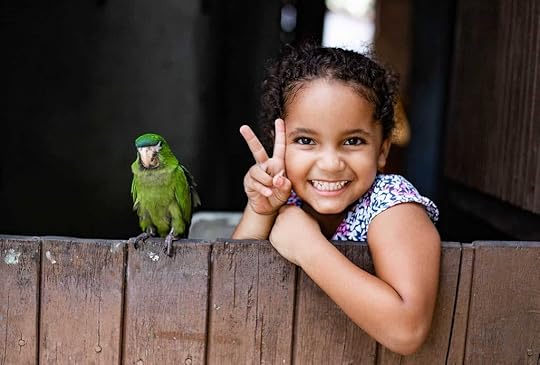

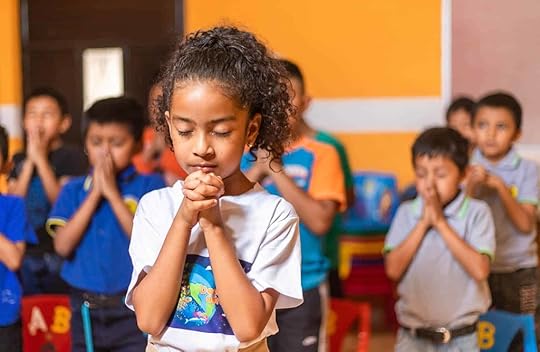
20 Photos That Capture How Awesome Children Are
Amen and amen, wake us up, Lord: I’m Sorry (a lament)
the love of a community for a mother who has a child with special needs? many tears here watching this one…

When the road you’re walking is suddenly broken, when pain and darkness surround you, when unanswered questions and feelings of helplessness fill your heart…what are you compelled to do?This story of beauty shines hope into the broken places today:
From Broken to Beautiful: when you need to believe there’s a plan for your pain
View this post on Instagram
October 7, 2020
What’s really safe these days? These treasures right here
It can be tempting to slip into fearful and anxious thoughts these days, can’t it? Sometimes it feels as if everything is being taken from us or could be soon. Once again, Anne Graham Lotz brings us back to solid, hope-filled truth. Today she reminds us that who we are in Christ—and who God is in our lives—never changes. And that’s the greatest treasure of all. It’s a privilege to welcome Anne back to the farm’s front porch today…
guest post by Anne Graham Lotz
Many years ago, our home was robbed. The front door was broken down, and everything of value was taken—silver, jewelry, cameras, and even furniture.
That night, after I talked with law enforcement officials who assured me that the thieves would not come back, I crawled into bed—under the same covers the thieves had folded back in order to remove the pillowcases from my pillows as a means of carrying what they had stolen.
“All I could think of were the countless things that could be taken from me.”
I was terrified. All I could think of were the countless things that could be taken from me: my home by fire, my health through disease, my children by kidnappers, my spouse through death, my reputation through gossip . . . I felt my body becoming cold and stiff. I knew I was going into shock.
And then God began to whisper to my heart.
I had been studying Ephesians, so the first two chapters were familiar to me. The third verse of the first chapter promises that we have “every spiritual blessing in Christ.”
I knew that the blessings God gives through Jesus Christ could never be taken from me. So I began to list them as they are given in Ephesians 1 and 2. There were so many that I put them to the alphabet, then went to sleep peacefully.
The next morning when I awoke, I wrote down the list of blessings that no one can ever take from me. Blessings that no thieves can steal.








“I knew that the blessings God gives through Jesus Christ could never be taken from me.”
I want to share with you this list of blessings, which I call “The Believer’s Birthright.”
It is my prayer that it will help stimulate your thanksgiving and praise to the One from whom all blessings flow.
We are . . .
Accepted—as accepted by God as Jesus is.
Blessed.
Chosen to belong to God.
Delivered from sin, self, and Satan.
Enlightened to understand the things of God.
Forgiven of all sin—past, present, future.
We have . . .
“When we acknowledge the blessings God gives us through Christ, we can give freely out of what God has given us—no matter our circumstances.”
Grace—great riches at Christ’s expense.
Hope of Heaven.
Inheritance laid up for us in Heaven.
Justification as though we had never sinned.
Knowledge of God.
Love of God.
Mercy—receiving less than the justice we deserve.
Nearness to God.
Oneness with God.
Peace that passes all understanding.
Quickening into new life.
Redemption.
Sealing of the Holy Spirit.
Truth.
Unity with other believers in the body of Christ.
Validation as authentic children of God.
Wisdom.
X–Y–Z Exaltation to live with Him in heavenly places.
When we acknowledge the blessings God gives us through Christ, we can give freely out of what God has given us—no matter our circumstances.
With that in mind, I’d like to share with you a prayer I wrote.
These words reflect my own longing to let go of what can never satisfy me so that I might embrace the blessings that the world can never take away.
Great Creator God,
I worship You, the Father’s only begotten Son, the One to whom the Father has given everything.
You are His Heir to all things. You hold the world in the palm of Your hand, yet You are the same One who sees when a sparrow falls. The same One who clothes the lilies of the field. The same One who fed five thousand hungry men and their families with five loaves and two fish. You have promised to meet all my needs according to the riches of Your glory, because You are Jehovah Jireh, the Lord our Provider.
I repent of hoarding my own wealth when You have freely given me all things. I repent of closing my eyes and ears to the needs of others because I want more for myself.
I repent of allowing the material blessings You have given to deceive me into thinking I don’t need You.
I repent of living as though material wealth will bring happiness.
I repent of being consumed with worry over my financial, material needs as though You are not sufficient for all things.
I choose to give You all that I have, not just 10 percent. I trust You to give me, in return, my next breath and to supply not everything I want but everything I need.
Reveal to me the immense debt I owe You so I can sincerely acknowledge it, live to repay it, and forgive others as You have forgiven me. I ask that You open my eyes to the spiritual as well as the material needs of others and use me to act on Your behalf to meet those needs. I ask for a fresh vision of Your power and wealth so I would hold loosely my material blessings, choosing to be content with or without them, as I look forward to my reward in Heaven. I ask that You give me courage to see, believe in, and live in the light of eternity so I resist temptation and instead abandon myself to Your will.
For the glory of Your great name—Jesus,
Amen.
Anne Graham Lotz, called “the best preacher in the family” by her father Billy Graham, is an international speaker and the bestselling and award-winning author of numerous books, including Just Give Me Jesus. The New York Times named Anne one of the five most influential evangelists of her generation. Anne is the president of AnGeL Ministries in Raleigh, North Carolina and the former chairperson for the National Day of Prayer.
Like many of us, Anne Graham Lotz has struggled with prayer. Over the years, she discovered that writing out her prayers draws her into deeper, more intimate conversations with God. Anne’s latest book, The Light of His Presence, is a tender collection of prayers from times of worship, confession, thanksgiving, and intercession in Anne’s own life. As Anne writes, “My prayer for you . . . is that God will use my struggle with prayer to help you overcome yours. And that, as a result, you will be drawn nearer to the heart of God.”
[ Our humble thanks to Multnomah for their partnership in today’s devotion ]

October 5, 2020
From Broken to Beautiful: when you need to believe there’s a plan for your pain
Each of us face different trials in life—trials in which our faith is tested, and we are faced with the decision whether or not to believe in the faithfulness of God. Meg Apperson and her family are not strangers to this journey. Brought to the point of sacrifice—much like Abraham with Isaac—Meg had to surrender all of her hopes and dreams as well as fears for her infant daughter born with life-threatening challenges to the Lord. And in that precious moment of surrender, light burst through the darkness. Meg’s journey is more than that of a loving Mother. It is a journey to which anyone who has experienced grief or pain can relate. It’s a journey in which we see what the Psalmist meant when writing “even in darkness light dawns” (Psalm 112:4). It’s a grace to welcome Meg to the farm’s front porch today…
“They will have no fear of bad news; their hearts are steadfast, trusting in the Lord.” Psalm 112:7
I’ve been writing since I was a little girl, so blogging was not much of a stretch for me.
I’ve always loved words. Reading came easily before I turned five years old and by ten, I had filled notebook after notebook with fictional stories.
I didn’t write much, other than essays and papers in high school and college, so I became rusty and forgot my old hobby. It wasn’t until I discovered lifestyle blogs that I considered writing again.
I was a single mother at the time and barely had the freedom to eat regular meals, much less write for pleasure, but a seed had been planted in my heart.
After Cody and I married, I purchased my first domain, FourFineLives.com. I was thrilled, and for the first six months, I posted absolute drivel. I posted my silly opinions as though the world needed to hear them, recipes, our pregnancy announcement, Avery’s gender and name, and other miscellaneous frivolity.
“I needed a miracle, and if I didn’t get one, I didn’t know how I would face what might come next.”
When we received Avery’s diagnosis, I didn’t plan to share what we were facing with anyone except our immediate family.
I withheld the news for weeks before reluctantly sharing it with my friends on social media.
The information already had been gradually leaked, so I knew I needed to speak out and let everyone to know that we were fine, but we would love their prayers and support.
Because the only proof of defects came from fuzzy ultrasound images, there was much we didn’t know about Avery’s condition before she was born, and I spent about six weeks in feverish research.
Blogs chronicling a family’s journey with craniosynostosis were so rare and often so depressing that the research left me with more anxiety than comfort. And I knew that Avery’s condition was more complex than most because she had multiple fused sutures—so even fewer blogs felt relatable.
I knew syndromic craniosynostosis was accompanied by airway issues, feeding difficulties, and a lot of need for medical intervention, but that’s where the information stopped.
The ambiguity of what we were possibly facing was so overwhelming that I had little hope for anything other than a miracle.
I needed a miracle, and if I didn’t get one, I didn’t know how I would face what might come next.
The unanswered questions and feelings of helplessness were the darkest tunnel in the prenatal period.
 J Christina Photography
J Christina Photography


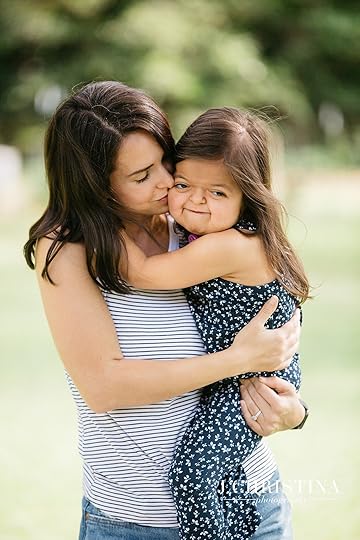 J Christina Photography
J Christina Photography

 J Christina Photography
J Christina Photography


“As I held her tiny body and severely deformed head, two roads clearly presented themselves before me: shame or pride.”
After Avery was born, I still wasn’t sure how I felt about sharing the extent of her condition with friends.
The night of her birth, she was whisked away to the children’s hospital, and I was left to recover alone in my hospital room an hour and a half away.
Avery’s empty “going home” outfit mocked me from my hospital bag. My baby would not be going home. My arms were empty. It felt like a cruel joke to arrive at the hospital with a baby tucked safely inside my stomach and leave with nothing.
When we were reunited the next day, as I held her tiny body and severely deformed head, two roads clearly presented themselves before me: shame or pride.
The nurses shielded the other visitors in our NICU pod from Avery’s appearance, and the doctors spoke in hushed tones when they used words like “abnormal” and “defective.”
When the other parents of the infants in our room caught sight of her, they stared and then looked away, refusing to look me in the eye. Cody even asked me to consider not sharing any pictures of Avery on social media to avoid upsetting any sensitive Facebook friends and family with her jarring appearance.
“I was overwhelmingly proud of Avery’s fighting spirit and repulsed by the thought of her feeling ashamed of herself, as I had been for most of my life.”
Anger and indignance rose in my heart. I was overwhelmingly proud of Avery’s fighting spirit and repulsed by the thought of her feeling ashamed of herself, as I had been for most of my life.
I was incensed by the suggestion that the way Avery looked dictated the kind of life she could lead. I didn’t care if people found her hard to see. They could look away.
I knew everything about Avery’s life was going to be bold and brave; she had already shown me that in the first twenty-four hours of her life. I wouldn’t let anyone hide her because she was different. She didn’t need anyone’s approval to make her worthy. She was born worthy, as an image-bearer of God.
I posted her first picture. I wanted to tell her story. I wanted the world to really see Avery in all her humanity.
I wanted everyone to see that people with physical differences are not scary.
I wanted the world to see her power, her will to survive.
And I wanted to tell our story for the next mom who heard the words, “Your baby has craniosynostosis.”
I wanted to be there on her screen when she googled the terms that scared her to death and made her sick to her stomach so that she would know she will never be alone.
“She didn’t need anyone’s approval to make her worthy. She was born worthy, as an image-bearer of God.”
I believed God was smiling at the decision. I had no idea the extent of the story He was weaving, but I knew He wanted me to tell it, whatever it was. My following rapidly grew from friends and family to thousands of readers across the world.
I was once a reluctant advocate, but God’s purpose for Avery has been impressed on my heart so strongly that I’m compelled to share His work in our lives.
I’m compelled to share how He takes “broken” and turns it into “beautiful” — how even in the darkness, He has a plan for all our pain.
Meg Apperson is a blogger, homeschooling mother, and pastor’s kid. She and her husband, Cody, live in North Carolina with their four children. Meg is a passionate lover of words, an advocate for medically fragile children, and an aspiring minimalist.
Meg grew up having a relationship with Jesus, and she always trusted God. But it wasn’t until her daughter Avery—a miracle in so many ways—was born with a litany of life-threatening birth defects that she began to fully understand what it means to trust Jesus with everything.
Sky Full of Stars is a heartbreakingly beautiful memoir where a mother fights for her family and grapples with the weight of feeling let down by God. In the midst of deep grief, she discovers that God is both good and faithful.
You’ll learn how a mother fought for her child, her family, and even herself as she grappled with the weight of failure—of letting down everyone around her and feeling let down by God.
[ Our humble thanks to Salem Books for their partnership in today’s devotion ]

October 3, 2020
Only the Good Stuff: Multivitamins for Your Weekend [10.03.20]
Happy, happy, happy weekend!
Some real, down in the bones JOY to celebrate today! Links & stories 100% guaranteed to make you smile a mile wide & believe like crazy in a Good God redeeming everything — and that there’s love everywhere & for ((you))!
Serving up only the Good Stuff for you & your people right here:
 Marcin Zając: Instagram and website
Marcin Zając: Instagram and website Marcin Zając: Instagram and website
Marcin Zając: Instagram and website Marcin Zając: Instagram and website
Marcin Zając: Instagram and websitecome along with us here: exhale and dream big and beautiful things this weekend!
maybe the very best way to travel to work?!?
View this post on Instagram
Ann Voskamp's Blog
- Ann Voskamp's profile
- 1368 followers


